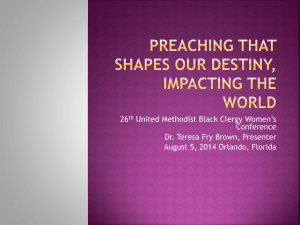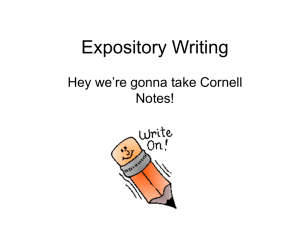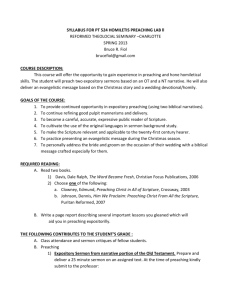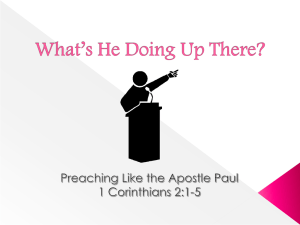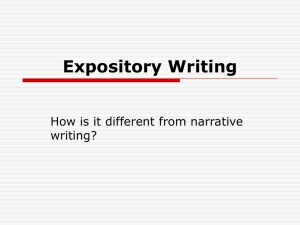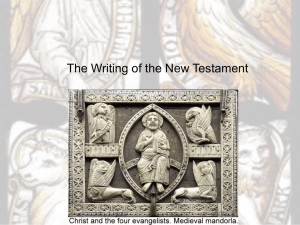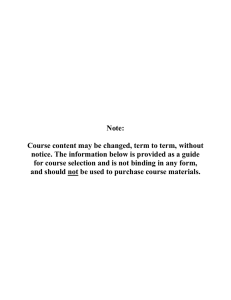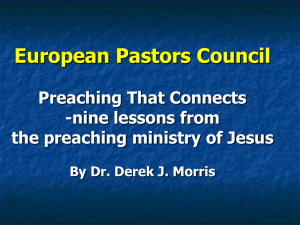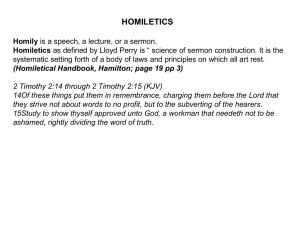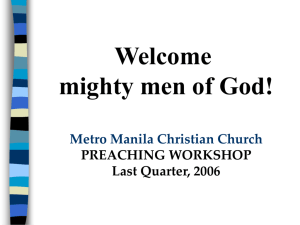Expository Preaching
advertisement
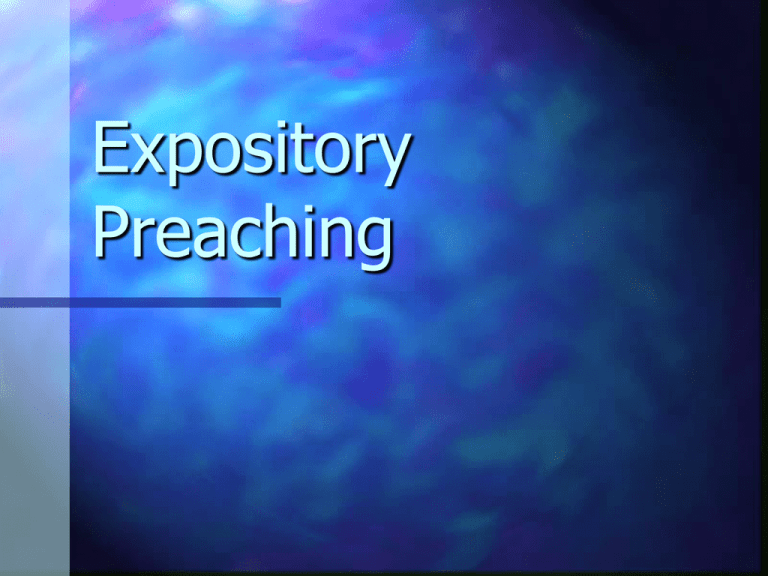
Expository Preaching Expository Preaching - Principles and Practice by Haddon Robinson (18) Three Types Topical a series of Bible verses loosely connected with a theme Textual short text or passage as a gateway into whatever subject the preacher chooses to address. Expository focuses on the text and its context (historical and contemporary). What is Expository Preaching? Webster ‘an exposition is a discourse to convey information or explain what is difficult to understand’ ‘laying open the text to public view in order to set forth its meaning and make appropriate application’ The source (starting point) Topic or Issue (Marriage) Felt Need (How do I...) Question Explain, interpret and apply the Scriptures. (LK.24:27) Expository preaching is not Exegesis – a commentary running from word to word and verse to verse without unity, outline and pervasive drive. Linguistic analysis – a collection of grammatical findings and quotations without a fusing of these elements into a smooth, flowing, interesting and compelling message. Historical recollection – a reconstruction of the history of a text. (p.11) Rooted in scripture Not reflecting your views / ideas, but representing or reporting biblical truth. (ambassador) Not just re-stating what scripture says (rules, theology, history), but recreating an encounter with God’s word. Narrative, poetry, dialogue Re-telling the story. Re-living the emotion. Re-engaging the debate / issue. Making scripture relevant and living for a particular congregation / people. Haddon Expository preaching is the communication of a biblical concept, derived from and transmitted through a historical, grammatical, and literary study of a passage in its context, which the Holy Spirit first applies to the personality and experience of the preacher, then through him to his hearers. Understanding the Expository Process Preparing the expositor. Processing and understanding the text. Pulling the expository message together. Preaching the exposition. 1. Preparing the Expositor (Ez.7:10) Passion and love for God’s word Giftedness (ability) Inclined and trained (working knowledge) Sensitive to the Spirit (signs and sighs) A man in tune with God’s Spirit and Word is ready to begin a process to discover not only what God originally meant by what He said, but also appropriate principles and applications for today. (p.13) 2. Processing and Understanding the Text OBSERVE (what) INTERPRET (why) APPLY (How) Observe What stands out? What is the big idea? (What is the passage trying to say?) What is the relationship to the whole? What is the structure? What type of literature? Identifying the underlying idea Subject (formulate as a question) Complement Interpret Why is the writer saying these things? What did they mean to those who first heard them? Apply How does this idea / theme apply to me / congregation. (p.16) What life experiences / situations does it resonate with? 3. Pulling the message together Titles, outlines, introductions, illustrations, and conclusions. A4 Introduction Key Points Conclusion Conclusion What one expects to happen in the hearer as a result of preaching the sermon. Not the idea / idea states truth / purpose – what the truth should accomplish (p18) Key points – what is the key idea and what information does this passage give me in relation to that idea? Introduction – Context / reading / Question Illustrations Titles Preaching the Exposition Dress Delivery Dynamic
